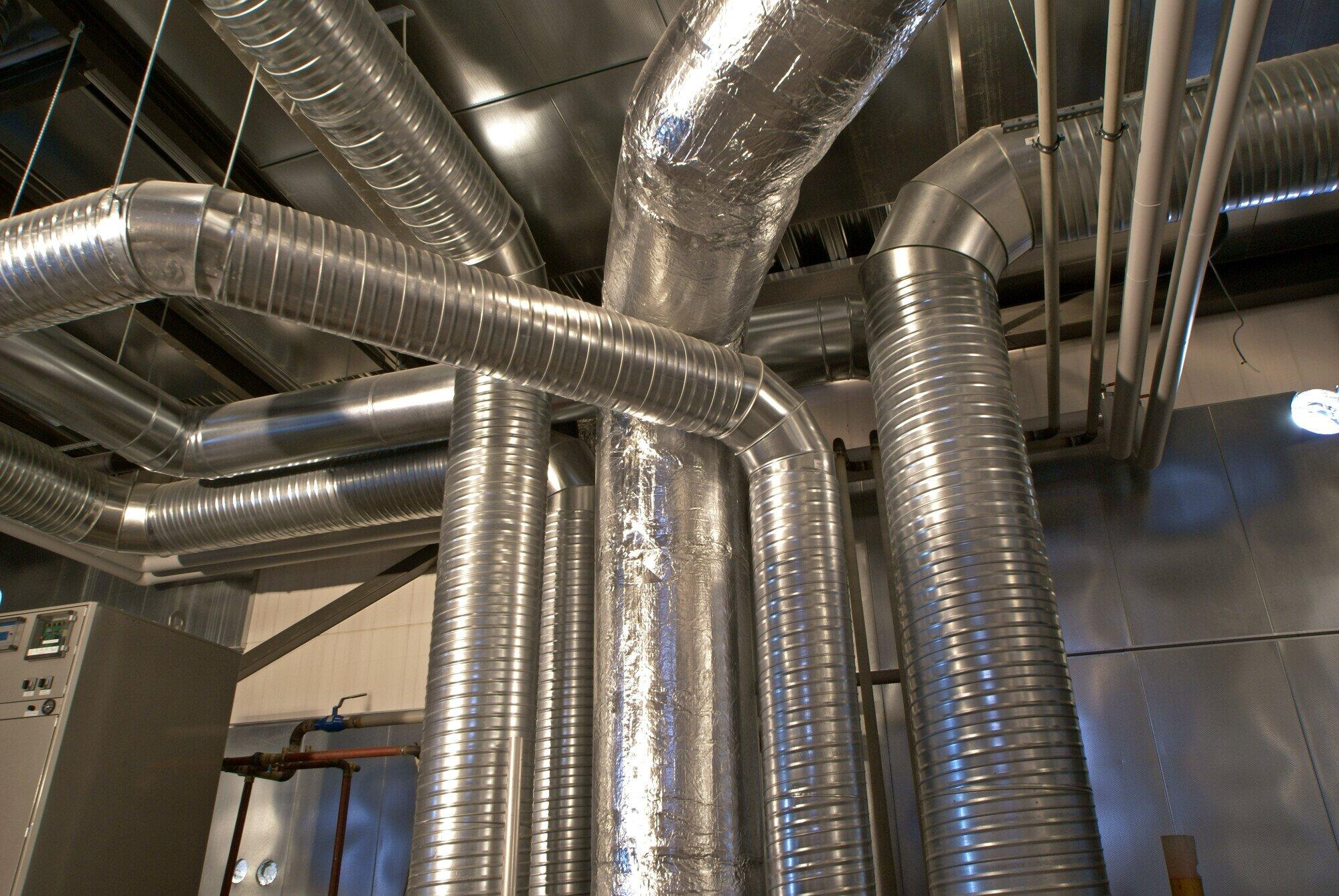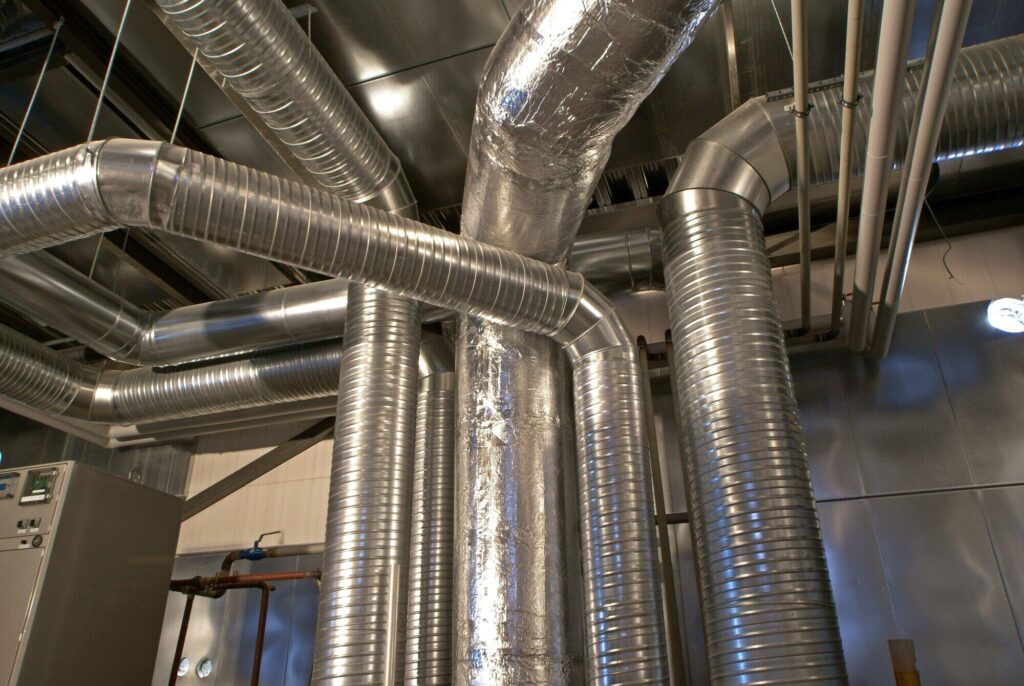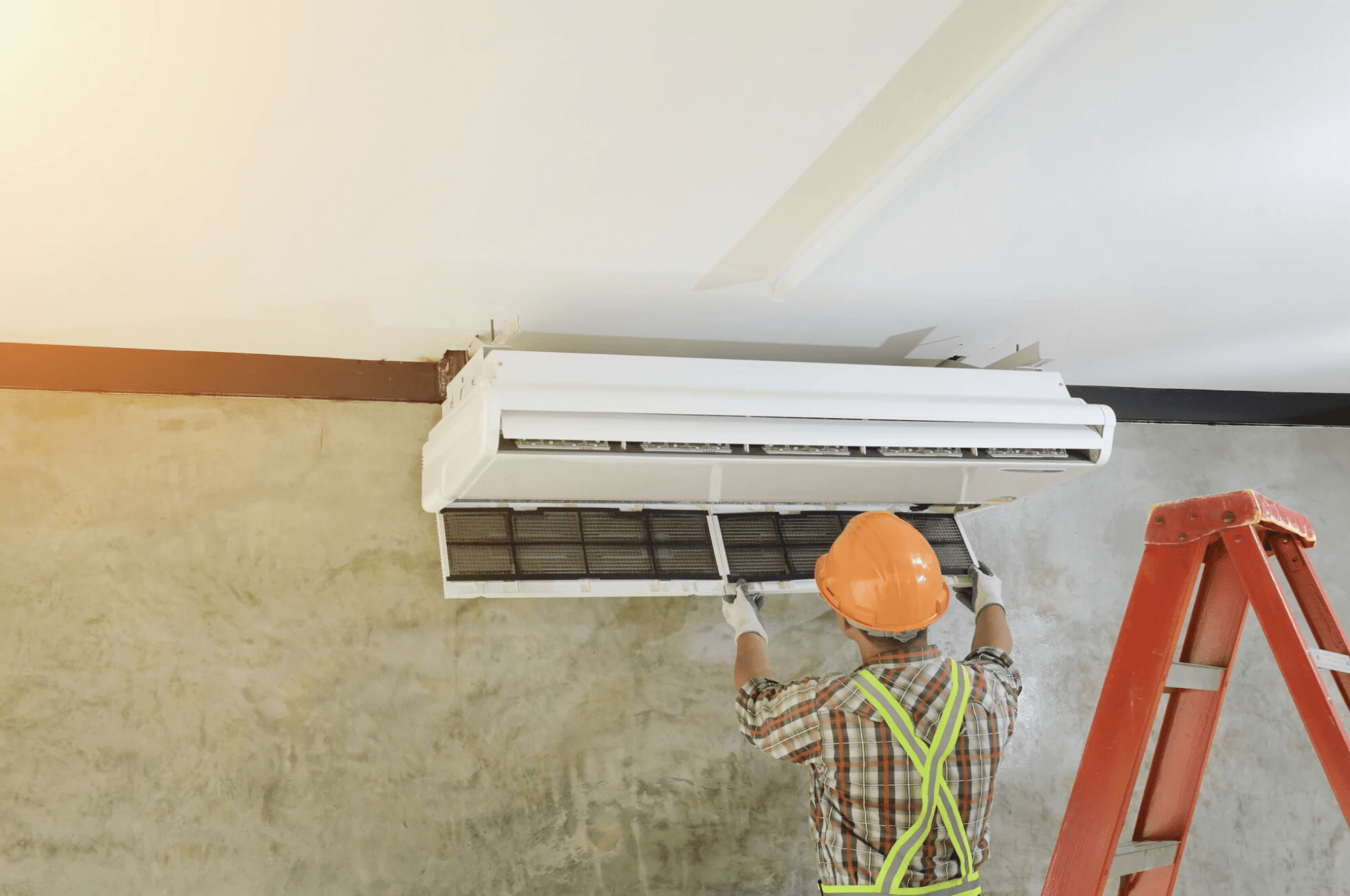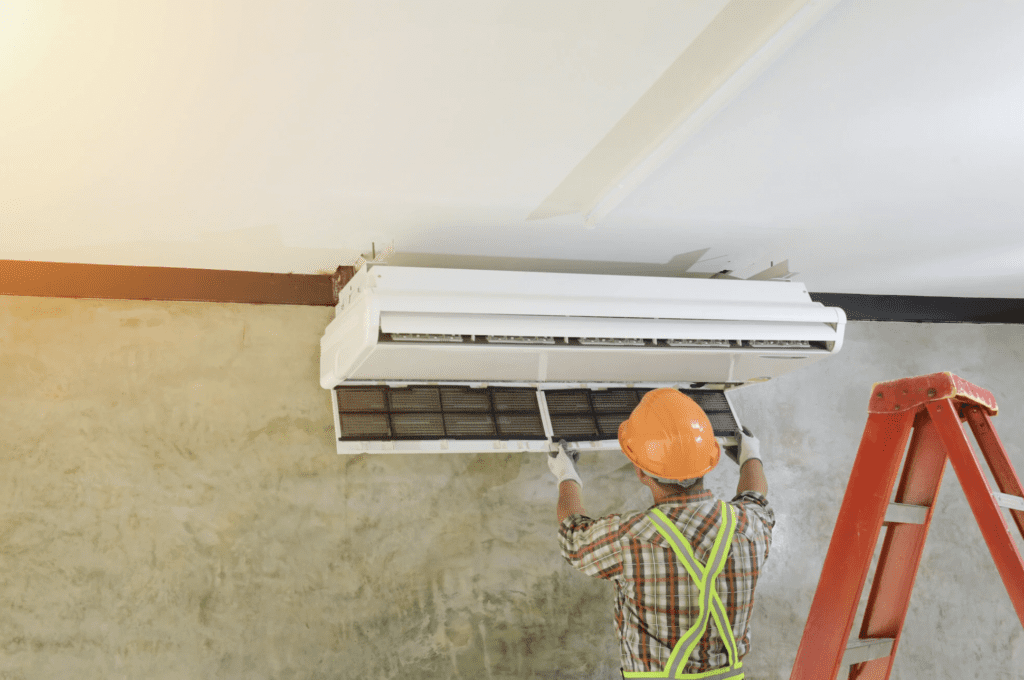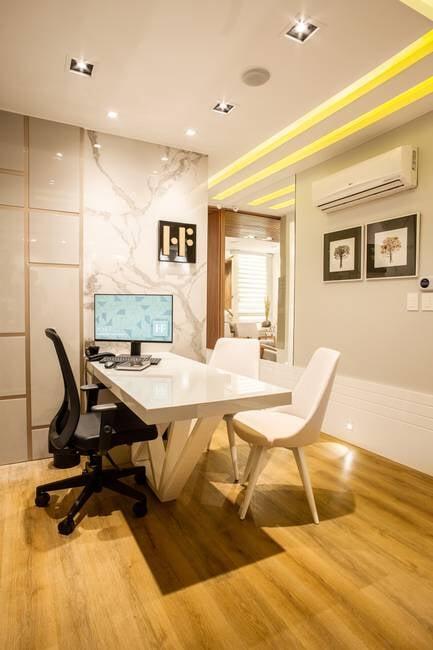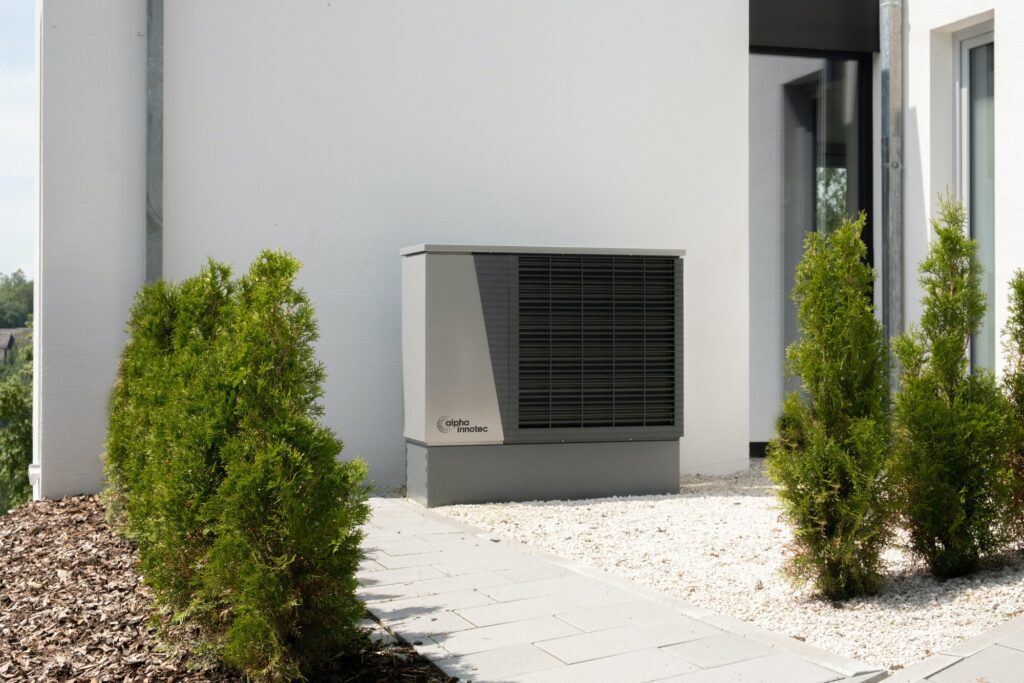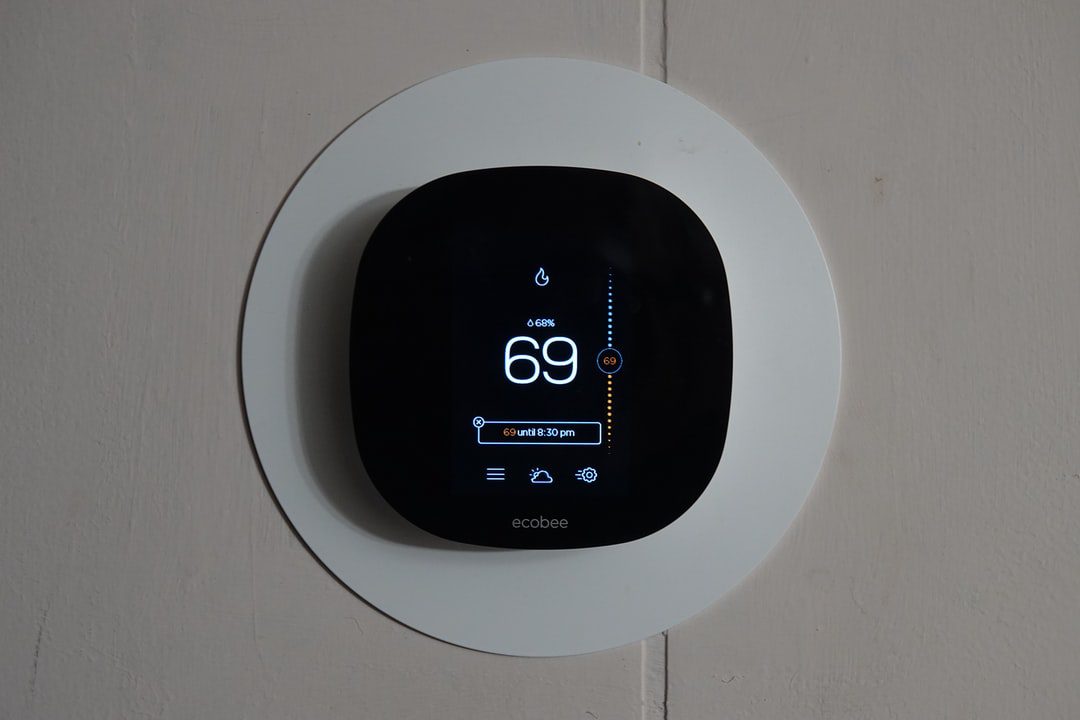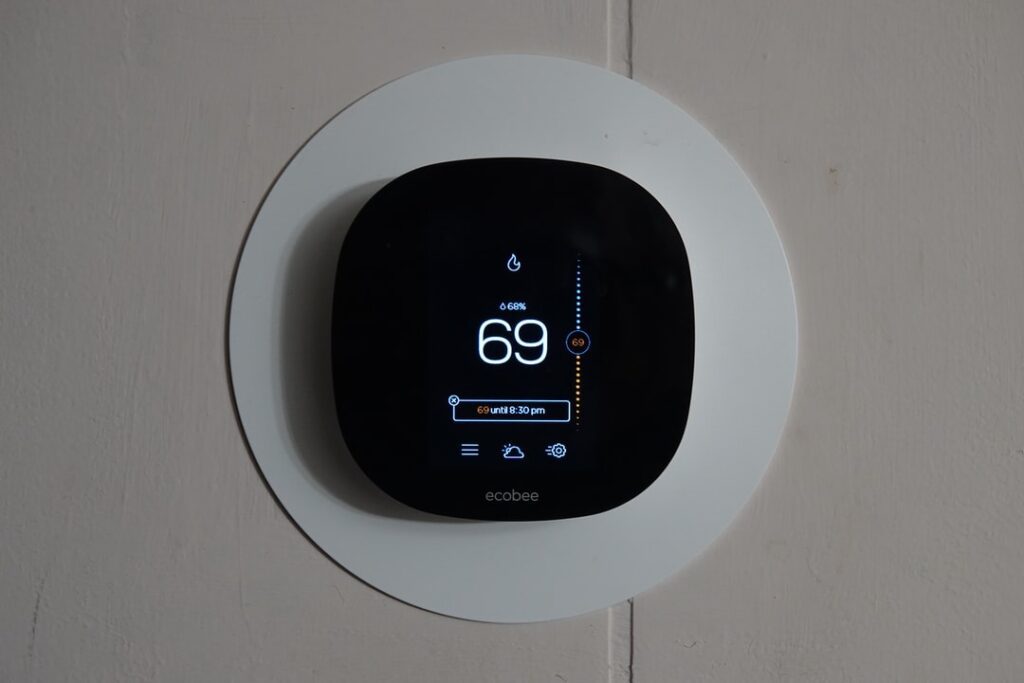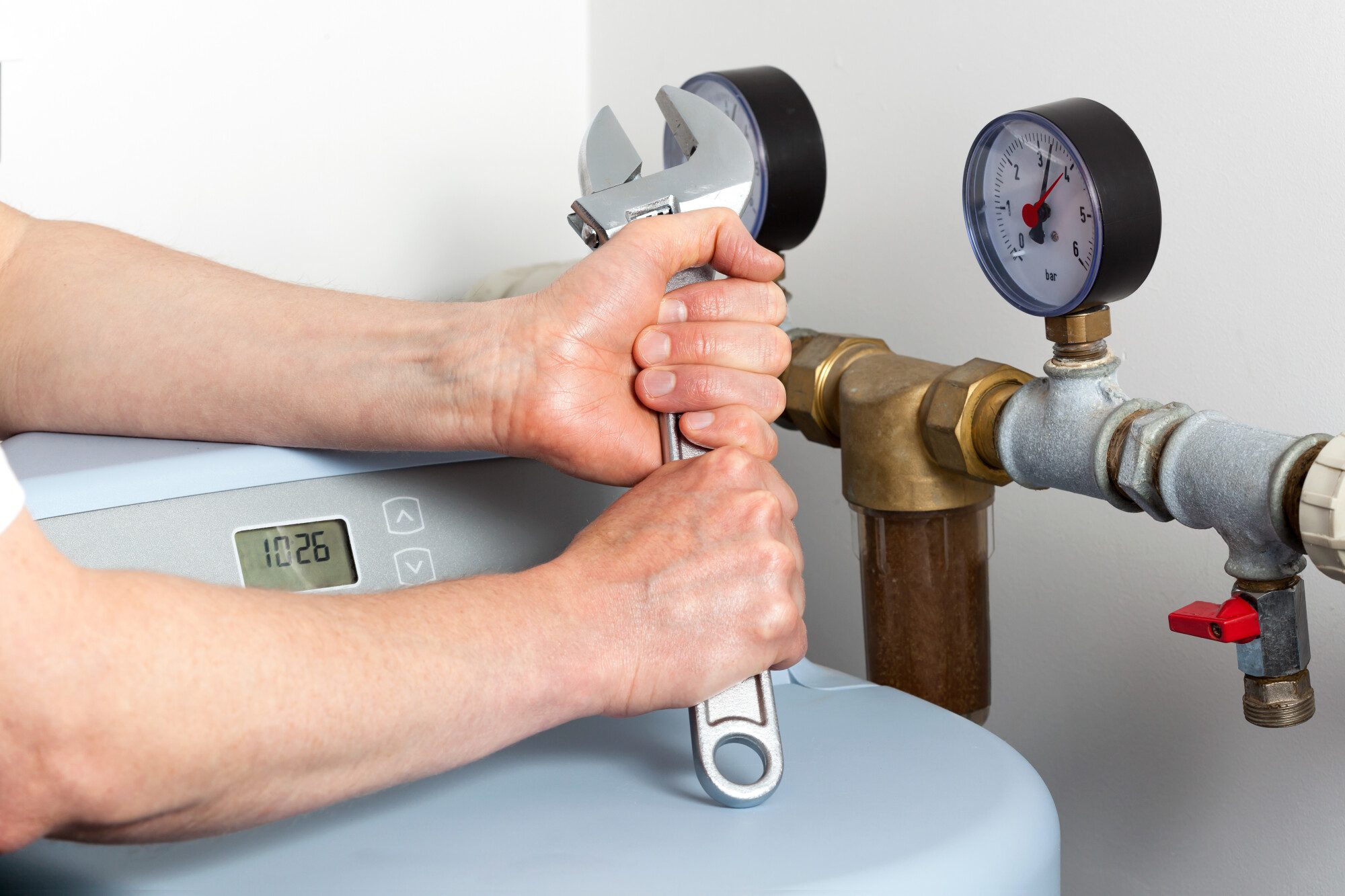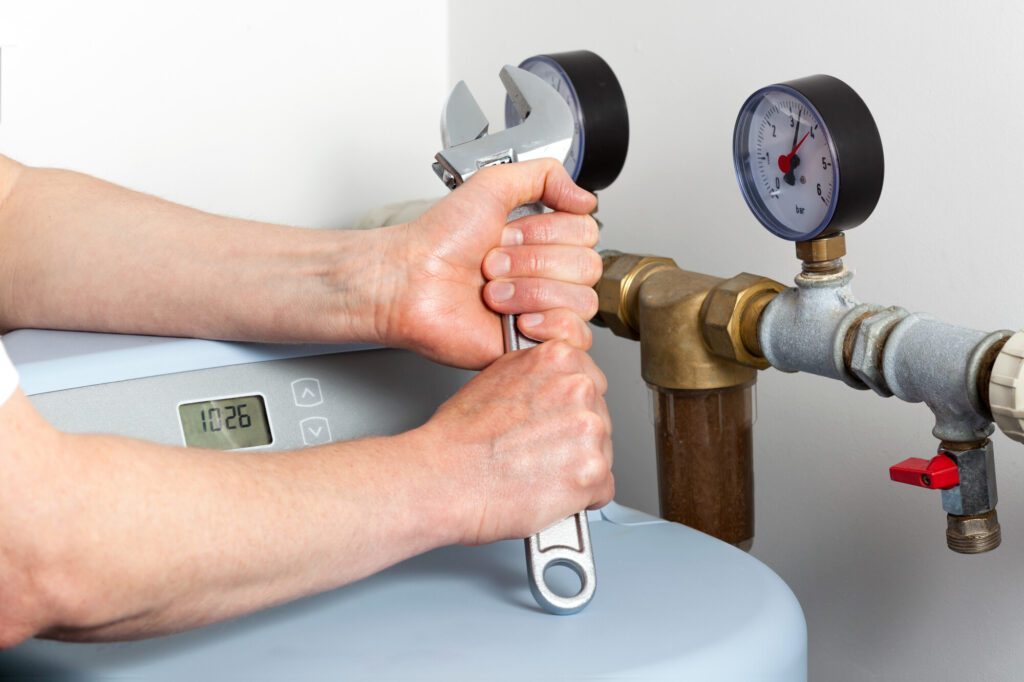Signs Your Ductless AC System Needs to Be Replaced in Cape Coral, FL
Summers in Florida can get pretty extreme, and it's important to do what you can to stay cool when the temperature rises.
A reliable HVAC system can keep your home cool, and while many homes already have one, a lot of these are suffering issues.
HVAC systems degrade and break down with time. Small issues may not be obvious at first, but if they're not dealt with quickly, they can grow into much larger problems. Spotting the signs of failure early on can help you save money and keep your home cool at all times.
In this guide, we'll take a look at some of the key indicators that show your mini split system needs to be replaced in Cape Coral, FL. Keep reading for more.
Frequent Breakdowns
One of the most obvious signs that you need an air conditioning replacement is constant breakdowns. This doesn't just apply to mini split systems, but any HVAC system.
As it ages, parts will wear down and become more likely to fail. This can lead to continuous breakdowns, requiring a lot of repairs. While it's typically cheaper to repair or replace parts than to replace the whole system, if you're doing this too often, it may not be worth it.
When repair costs keep adding up, it could be more cost-effective to replace the whole system. A new system will be in much better shape, so you shouldn't have to worry about any major maintenance costs for a while. This can save you money in the long run.
Unusual Noises
It's normal for Cape Coral cooling systems to make some noise through regular operations, though mini split systems are usually quieter than other types. If there are issues with yours, however, it could start to make some unexpected sounds.
Depending on what the problem is, you could hear banging, rattling, hissing, grinding, or a range of other noises. Unfortunately, there are all kinds of issues that can cause this, such as:
- Loose parts
- Compressor overheating
- Frozen or dirty evaporator coils
- Leaks in the refrigerant lines
- Dirty air filters
- Cheap materials in the HVAC system
It can be difficult to determine the cause, especially for someone who doesn't have much experience with HVAC units. You'll want to get a professional to take a look at it and diagnose the problem. They'll then be able to tell you what the cause is and whether you should get a repair or a replacement.
Increased Energy Bills
Of the various HVAC replacement signs, this is one that's a bit easier to miss as it may not be clear from the system itself. Mini split system efficiency will gradually decline, but if there are any major issues, it can cause a rapid drop in efficiency.
If your system is struggling to cool your home properly, it's likely to start working harder to achieve the same results. This will cause it to use a lot more energy, leading to a sharp rise in your utility bills.
Electricity prices always seem to be on the rise, but if there's a sudden, unexpected jump, you should get a professional HVAC technician to take a look at your system. If there's an issue, they'll be able to find it. A new system will be far more reliable and efficient, bringing your bills back down to a normal price.
This is the kind of thing you don't want to ignore. The longer you leave it, the more you'll be paying each month and you'll be wasting money needlessly. This increase in energy usage is also bad for the environment, which is a major concern for a lot of people.
Frequent Leaks
If you spot a leak from your mini split system, it may be because there's a refrigerant line leak. In many cases, this is a major problem that needs to be dealt with quickly. If it's left for too long, it can cause irreparable damage to the compressor.
This kind of problem can be repaired in some cases, but it's often very expensive. A full replacement may be the most cost-effective solution in this situation.
Poor Indoor Air Quality
The indoor air quality of your home is very important, and it can be greatly affected by your HVAC system. Air filters should be regularly cleaned and/or replaced to reduce the pollutants in the air, but sometimes this may not be enough.
If you replace your filters and find that the air quality is still quite poor, it may be worth replacing your whole mini split system. Bad indoor air quality can present a serious health risk for you and your family, so you should contact a professional as soon as possible so you can determine the best course of action.
Inadequate Cooling
A mini split system should be able to cool your entire home evenly when it's working properly. You might notice that there are some areas that are warmer or colder than others. This usually means that the system is getting old or it's not large enough for your home.
A newer system that's better suited will solve this issue. It will be able to cool your entire home efficiently so it stays at a stable temperature while keeping your energy usage down.
Foul Smells
After some time, you might notice a musty smell coming from your AC system. This indicates the buildup of mold or mildew.
If these contaminants are in the air in your home, they could present a health risk to you and your family. Get a professional to take a look to determine the cause of the smell.
Getting the Right Mini Split System for Your Home in Cape Coral, FL
A mini split system can be a great way to keep your home comfortable, but they can break down in time. If you notice any of the signs above, it may be time for a replacement.
Ellsworth Heating & Cooling provides professional HVAC services throughout Cape Coral, FL. Our fully qualified team has been providing industry-leading services since 1968. Get in touch today to find out more about our services.
After the Storm: Steps to Assess and Restore Your HVAC System in Punta Gorda, FL
Hurricanes are catastrophic severe weather events that can cause millions of dollars of damage. For example, Hurricane Ian caused over $112 billion in damage in 2022 and around 150 deaths. Homeowners take the brunt of the damage from hurricanes, with their homes, AC units, and yards getting ravaged.
There is usually a lot to do during the aftermath of a hurricane. You may be tempted to turn on your HVAC unit right away to cool down your home. However, checking your HVAC system components before you do so is important.
This blog will discuss what to do with your HVAC system after a storm in Punta Gorda. Our HVAC safety tips will help you assess storm damage and determine when to contact a repair company.
Wait for the All-Clear
The first thing to keep in mind is that you want to ensure it's safe for you to go outside and check your HVAC unit. Make sure the storm has completely passed. You should also wait until the local authorities have told residents that it's safe for them to exit their homes.
Inspect Your HVAC Unit for Damage
Visually inspect your AC unit for visible signs of damage. We recommend not getting too close to the system during this step. Keep an eye out for the following things that may pose a safety risk:
- Standing water
- Debris
- Branches
Don't restore power to or plug back in your unit until it's safe to do so. It's no mystery that water and electricity don't mix. The last thing you want is to get electrocuted because you turned your AC back on when it was surrounded by standing water.
Put on Protective Gear
You may approach your HVAC unit if you deem it safe to do so. Keep yourself and anyone who's helping you stay safe by wearing protective gear. This may include:
- Safety goggles
- Sturdy gloves
- Heavy boots
- Long pants
Be mindful of debris or sharp objects that may be surrounding your HVAC unit.
Clear Debris
Gently remove anything that's accumulated around your HVAC unit while wearing your protective gear. Some of the things that might've gotten in your system include:
- Leaves
- Trash
- Branches
You'll want to ensure that the fins and condenser coils aren't obstructed or blocked. You should replace your HVAC unit filters even if your system looks fine. The filters may have been clogged with debris or gotten damp during the storm.
Contact a Punta Gorda HVAC Restoration Company
It's important to know whether you'll need to contact an HVAC repair company after your initial inspection. You should place a call to a Punta Gorda HVAC company if you notice standing water around your unit or suspect water has infiltrated it.
You may continue with clearing off the unit if you believe it's safe to do so. Don't hesitate to call them if you have any questions. They'll let you know if they want to come to your home or if you can continue with clearing nearby debris.
Take Temporary Actions
You may not be able to use your HVAC unit if it's damaged and you're waiting for a repair company to come. A few things you can do include:
- Covering the unit with plywood or a tarp
- Placing towels or buckets underneath to collect water
- Cool your home with portable AC units
We don't recommend attempting to repair or tamper with electrical components, as this could be dangerous and potentially worsen the problem.
Create a Checklist for Future Storms
There may be some steps you can take to prevent damage from happening to your HVAC unit during a future storm. While not every issue can be avoided, being proactive can't hurt. Some items you should add to your storm preparedness checklist include:
- Clearing debris and loose items from the area around your unit
- Covering your system with plywood or a tarp
- Turning off the power to your HVAC unit
Turn Your HVAC System Back On
Once you or an HVAC technician have determined that your unit is damage-free and safe, you may turn it back on. Don't forget to turn your thermostat back on if you turned it off before the storm began.
File an Insurance Claim
Your HVAC unit may have been so significantly damaged that you need to file an insurance claim. Knowing what your policy covers can help cover some of the repair or replacement costs.
Take Photos
We recommend taking photos and videos of your AC unit before the storm hits. This makes it easy to pinpoint damage when making claims to your homeowner's insurance company. You may want to take notes of any visible damage you see before the storm.
Take clear photos and videos of the affected areas after the storm. Make sure the images are from multiple angles. Again, all this information makes it easier to file an insurance claim (if necessary).
Check Your Policy
Carefully read through your homeowner's insurance policy. Pay close attention to the parts of it that discuss HVAC coverage. Determine if your policy covers certain perils, such as:
- Water damage
- Fire
- Storm damage
Contact Your Insurance Company
Let your homeowner's insurance company know right away that your HVAC unit was damaged during the storm. Many companies have certain claims processes you need to follow.
Get Repairs Estimates
Most insurance companies require you to obtain estimates from several HVAC repair companies. Ellsworth's Heating & Cooling has experience working with insurance companies in Punta Gorda.
Protect Your HVAC System Components Before the Next Punta Gorda Storm
Being prepared is one of the first steps to keeping your HVAC system components safe. Avoid serious problems from occurring by taking the right precautions and staying on top of your AC maintenance. Working with a local storm damage HVAC repair company will ensure you keep your unit protected and safe.
Whether you need assistance with post-storm HVAC maintenance or preparing for the next storm, the technicians at Ellsworth's Heating & Cooling are here to assist. We're proud to offer five-star and A+-rated HVAC services to our community.
Call our office to schedule an appointment to discuss our HVAC repair and maintenance services in Punta Gorda, Fort Myers, Cape Coral, and beyond.
Which AC System is the Most Efficient in Fort Myers, FL?
If you're a Fort Myers resident, you know the importance of a good AC system. But are you struggling to find the most energy-efficient AC unit?
There are certainly a lot of models and brands to choose from. So which should you choose?
Today we're taking a look at some of the top AC units to consider, with an eye towards energy efficiency!
Energy Efficiency and SEER Ratings
When it comes to energy efficiency, SEER (Seasonal Energy Efficiency Ratio) ratings play a key role. SEER measures how efficiently an AC unit operates over a cooling season.
Higher SEER ratings mean better efficiency, which leads to lower energy bills. This is particularly important in Fort Myers, where hot and humid summers demand high-performing air conditioners.
In Florida, the minimum SEER rating for new AC units is 14, but many energy-efficient models go much higher. A SEER rating of 16 or above is considered excellent, and some models even reach up to 26. Choosing a high-SEER unit means you'll save more on energy costs over time.
Factors to Consider for the Most Energy-Efficient AC Unit
Choosing the right system type is vital when searching for the most energy-efficient AC unit. Central air conditioning systems are popular due to their ability to cool an entire home uniformly.
But ductless mini-split systems are increasingly popular, offering flexibility and efficiency, especially in homes without existing ductwork. While central ACs generally require ducts, mini-splits provide zoned cooling, which helps reduce energy usage.
Size and Capacity
Getting the size right is just as important as selecting the type. An oversized air conditioner will cool your home too quickly. This will cause it to turn on and off frequently, leading to higher energy bills and humidity problems.
However, an undersized unit will struggle to maintain the desired temperature. It will overwork itself and increase wear and tear. Consulting a professional for a load calculation is important to finding the perfect fit for your home.
Additional Efficiency Features
Look for features like variable-speed compressors that adjust the cooling output based on the room's needs. Smart thermostats can also play a significant role. They will learn your cooling habits and adjust temperatures accordingly.
Energy-efficient fan motors and improved refrigerants also contribute to overall efficiency. This helps ensure your new AC delivers maximum comfort without breaking the bank.
Let's look at some of the popular energy-efficient AC models.
Carrier Infinity 26
The Carrier Infinity 26 is one of the most energy-efficient central air conditioning systems available. With an impressive SEER rating of up to 26, it's designed for high performance in hot climates like Fort Myers.
It features a variable-speed compressor that adjusts to your home's cooling needs. You'll get consistent comfort while keeping energy usage low.
The unit also has advanced humidity control, which is a huge plus in Florida's humid environment. Although it requires a significant initial investment, the long-term energy savings, and exceptional comfort make it a worthy option.
Trane XV20i
The Trane XV20i is another top-performing model with a SEER rating of up to 22. This unit also boasts a variable-speed compressor, allowing it to run at precise speeds for optimal efficiency. It uses Climatuff technology, which helps it deliver quieter operation and long-lasting reliability.
The XV20i's ComfortLink II communicating technology allows it to pair with other Trane smart home devices for seamless climate control. This model is known for its durability and efficient cooling, making it a great choice for those looking to lower their energy bills.
Lennox XC25
The Lennox XC25 is recognized for its exceptional energy efficiency, with a SEER rating of up to 26. It uses Precise Comfort technology, which adjusts the cooling output in small increments to maintain consistent temperatures.
This unit also features a variable-capacity compressor and an integrated iComfort thermostat that works together for precise climate control. The XC25 provides effective humidity management and energy savings, making it a standout option for those seeking a reliable and efficient cooling solution in Fort Myers.
Let's shift our focus to some of the best ductless mini-split systems.
Mitsubishi Electric MUZ-FH
The Mitsubishi Electric MUZ-FH is a leading ductless mini-split system that boasts an impressive SEER rating of up to 30.5. This exceptional efficiency makes it an ideal choice for Fort Myers, where hot summers demand reliable cooling.
The MUZ-FH features advanced inverter technology, which adjusts the compressor speed based on the room's cooling needs, ensuring consistent comfort and minimal energy use. It also incorporates a built-in heat pump, making it a versatile solution for year-round climate control. The unit's quiet operation and precision temperature control make it a top choice for energy-efficient cooling.
Fujitsu Halcyon RLS3Y
The Fujitsu Halcyon RLS3Y series is another standout in the ductless mini-split market, offering a SEER rating of up to 33. With its inverter-driven compressor, it provides consistent temperature regulation while reducing energy consumption.
The RLS3Y models also come with a variety of features, including an advanced air filtration system and a quiet mode for whisper-quiet operation. Its Energy Star certification ensures it meets stringent energy efficiency standards. So it's a strong contender for those looking to save on their energy bills while maintaining comfort.
Daikin LV Series
The Daikin LV Series is known for its reliability and energy efficiency, with a SEER rating of up to 24.5. It uses inverter technology to automatically adjust cooling capacity, providing steady temperatures without wasting energy.
The LV Series includes a wide range of models, allowing homeowners to find the perfect fit for their space. Its intelligent eye feature detects room occupancy, switching to an energy-saving mode when no one is present. With its quiet operation and effective cooling, the Daikin LV Series is a strong choice for anyone seeking an efficient, ductless cooling solution.
Keeping Cool in Fort Myers
Finding the most energy-efficient AC unit for your Fort Myers home involves understanding SEER ratings, choosing the right system type, and ensuring quality installation.
Here at Ellsworth's Heating & Cooling, we are a Daikin Comfort Pro, Lennox, and Premier Dealer Trane Comfort Specialist that also services and repairs ALL makes and models. We put our community first by striving to exceed expectations, treat our customers like family, and give back to our community.
Get in touch today to find out how we can keep you and your family comfortable!
How to Fix Leaky Air Ducts in Your Home in Cape Coral, FL
If you're tired of your home turning into a mini Everglades every time the AC kicks on, it's time to tackle those leaky air ducts in Cape Coral, FL.
Imagine a world where your HVAC system runs efficiently, your energy bills drop faster than a palm frond in a summer storm, and your indoor climate feels like a gentle Gulf breeze.
We can help you make your HVAC dreams come true.
Let's go through how to fix the leaky air ducts in your Cape Coral home.
Find Leaks
Start by visually inspecting your air ducts. Look for visible signs of leaks such as holes, cracks, gaps, or disconnected joints.
Check the ducts in areas like the attic, basement, crawl spaces, and any exposed or loose duct work. you should also watch out for improper duct installation.
Turn on your HVAC system and feel around the AC ducts for any areas where air is escaping. You can use your hand or a tissue to detect airflow indicating leaks.
Try a smoke test. A smoke test involves using smoke pencils or sticks near the ducts while the HVAC system is running. If there are leaks, the smoke will be drawn towards them, indicating the location of the leaks.
Check the insulation around the ducts. Damaged or missing insulation can contribute to leaks and should be repaired or replaced.
Upgrade Your System
Upgrading your HVAC system can be a good long-term solution for addressing leaky air ducts in your Cape Coral home.
If your ductwork is old, inefficient, or extensively damaged, consider replacing it with new, properly sized ducts designed for optimal airflow and energy efficiency.
Replace your old HVAC equipment with energy-efficient models that are properly sized for your home. This can include a new furnace, air conditioner, heat pump, or ductless mini-split system.
Opt for systems with high SEER (Seasonal Energy Efficiency Ratio) ratings for cooling and AFUE (Annual Fuel Utilization Efficiency) ratings for heating.
Consider installing zoning systems that allow you to control the temperature independently in different areas or zones of your home. This can improve comfort and energy savings by only heating or cooling occupied spaces.
Enhance indoor air quality by adding air purification systems, such as UV lights or HEPA filters, to your upgraded HVAC system. This can help remove airborne pollutants, allergens, and pathogens.
Cleaning and Maintenance
Conduct regular maintenance inspections of your air ducts to check for signs of leaks, damage, or debris buildup. Inspect visible duct sections in areas like the attic, basement, and crawl spaces.
Switch out or clean the air filters in your HVAC system according to the manufacturer's recommendations. Clogged-up or dusty filters restrict airflow and reduce system efficiency. Use high-quality filters to trap dust, pollen, and other airborne particles, improving indoor air quality.
Clean and vacuum the vents, registers, and grilles throughout your home. Remove any dust, pet hair, or debris that may obstruct airflow. Ensure that vents are open and not blocked to allow for good air circulation.
Keep the outdoor unit (condenser/compressor) of your HVAC system clean and free of debris. Trim vegetation and remove leaves or debris that could block airflow.
Schedule professional maintenance to inspect and clean the outdoor unit, check refrigerant levels, and ensure optimal performance.
Hire Professional Help
Professional Florida HVAC technicians have the knowledge, skills, and experience to quickly find and fix leaky air ducts. They understand the complexities of ductwork systems and can identify smaller or hidden leaks that may not be apparent to homeowners.
Professional contractors use high-quality materials, tools, and techniques to fix leaky air ducts. They ensure that repairs are done correctly, minimizing the risk of future leaks and improving the overall efficiency of your HVAC system.
HVAC work can involve working with electrical components, climbing ladders, and handling insulation materials. Professional technicians are trained in safety protocols and follow industry standards to ensure a safe working environment.
Monitor Energy Uses
Track your monthly utility bills, particularly those related to heating and cooling. Look for any unusual spikes in energy consumption, which could indicate inefficiencies in your HVAC system due to leaky air ducts.
Compare your current energy usage trends to previous months or years. A sudden increase in energy consumption without a corresponding change in weather or household habits may suggest duct leaks.
Pay attention to how frequently your HVAC system runs. If it seems to be running longer than usual to maintain comfortable temperatures, it could indicate duct leaks that are causing air loss and decreased system efficiency.
Address Humidity Issues
Addressing humidity issues while fixing leaky air ducts in Cape Coral, FL is crucial for maintaining indoor comfort and preventing potential problems like mold growth and moisture damage.
Use a hygrometer to help you measure the humidity levels in your Florida home. Ideally, indoor humidity should be between 30% to 50% for optimal comfort and to discourage mold growth.
Install and use exhaust fans in areas prone to moisture buildup, such as bathrooms, kitchens, and laundry rooms. Exhaust fans help remove excess humidity from these spaces, reducing overall moisture levels in your home.
Explore Energy Rebates and Incentives
Exploring energy rebates and incentives can be a great way to offset the cost of fixing leaky air ducts and improving the energy efficiency of your home.
Explore government websites such as the U.S. Department of Energy or the Florida Energy Office to find information about available energy rebates, tax credits, and incentives for home energy improvements. These programs may vary depending on your location and the current energy-saving initiatives.
Once you've identified relevant rebates and incentives, follow the application process outlined by the respective programs. This may involve submitting documentation such as receipts, invoices, and proof of installation for eligible energy-efficient upgrades.
Fix Your Leaky Air Ducts in Cape Coral Today
With this guide, you'll be able to fix your leaky air ducts in no time at all. Just make sure you're careful, and don't make any mistakes in the process!
Are you ready to hire HVAC help? Ellsworth's Heating & Cooling in Cape Coral, FL are Premier Dealer Trane Comfort Specialists that can help repair any HVAC system you happen to have.
Contact us today.
AC companies: 5 Tips for Hiring Your Best Option in Punta Gorda, FL
The HVAC business is booming in Florida, with over 11,000 AC companies operating statewide.
Every Floridian knows how important having a functioning HVAC system is. We live in one of the warmest states in the country and in the heat of summer, you'll be running your air conditioner almost constantly. The last thing you need is for it to start breaking down with no plan for repairs.
With so many AC companies in the state, it can be difficult to choose the right one for your needs. When you have a great HVAC company helping you out, you don't have to worry about poor indoor air quality or unforeseen repair costs. In today's post, we'll give you 5 tips for hiring the best option.
Don't wait until your AC unit fails to look for help. Keep reading and find a great AC company today.
1. Research Online Ratings and Reviews
The first thing you should do when searching for any home service is to Google, "AC repair near me" and look at the ratings and reviews. Every quality AC company relies on its reputation with former customers, so this is a great way to find the most reputable options and learn a bit more about them.
Former customers are never shy to share their experience with an AC company, both good and bad. In reality, you should be looking more closely at any red flags about customer service or quality of services that can eliminate certain companies from contention.
Another option is to get referrals from other Punta Gorda homeowners. A referral is sometimes easier to trust than an online commenter that you might not know. Use a combination of both of these tactics to find 5 of the most reputable AC companies in your area to research further.
2. Experience, Licenses, and Certifications
Once you've chosen several potential HVAC companies, it's time to start digging a bit deeper into who they are and what they do. The obvious place to do this is on their company website, where you can glean more important information that the reviews won't tell you, like how long the company's been in business and how qualified they are.
Experience matters in the world of HVAC maintenance and repair. The longer you've been at it, the more AC issues you've seen, so always prioritize on-the-job experience when looking for an AC company.
For instance, at Ellsworth's Heating and Cooling, we've been serving the Fort Myers area for over 50 years. During that time, we've seen just about all there is to see from every kind of HVAC system.
The other important things to look for are licenses and certifications when gauging a company's qualifications. In Florida, you need a state HVAC contractor certification to work as an HVAC technician. All of our employees go through important factory training, so they're prepared for anything.
In fact, the current president of our company, William Barnes, is the founder of the Florida Refrigeration and Air Conditioning Contractors Association. If you're looking for someone more qualified to service your AC, you won't find it in Florida.
3. Insurance and Warranties
Anytime you're bringing a technician into your home to do work, you need to make sure they've got insurance. If they don't and you don't call them on it, you may be liable for any technician injuries or property damage that occurs during their service. No quality AC company operates without general liability and workers comp insurance.
Nor do they operate without offering customers service guarantees and manufacturer's warranties. A service guarantee is a form of warranty that ensures you don't have to pay if something goes wrong with your HVAC service. They'll come back and work on it again until you're satisfied.
Manufacturer warranties are just as important. If any mishaps occur due to a defective part, you'll get the new part and repairs for free. These things bring the customer peace of mind knowing that the AC company is confident in itself and its manufacturer partners.
4. Get Estimates
Very few Florida homeowners budget for HVAC maintenance or replacement. These things often come when you're not expecting them, so the costs associated with HVAC service can feel prohibitive. It's important to find a company that will work with your budget while offering quality service.
Always obtain an AC repair free estimate from a few different companies so you have a good idea of what your service costs. Remember, it's not always the best move to choose the cheapest option. Choose a company that has a great reputation and offers competitive pricing.
We understand that there's never an opportune time to pay for HVAC repair or replacement. That's why we offer all of our customers the option of financing their new HVAC unit. We'll work with you to come up with a payment plan that works for your financial situation.
5. Services On Offer
Lastly, and most importantly, you always want to make sure that the HVAC company you choose can do what you need them to. Find out what they specialize in and if it's not in line with your needs, then it rules them out as an option.
Most reputable HVAC companies will offer a range of services, from AC installation to regular maintenance. What sets us apart is our ability to handle things like duct repair and design, provide air quality solutions, and replace pool heaters.
We also specialize in commercial HVAC services and UV germicidal light, which is quickly becoming one of the best ways to improve indoor air quality. Americans spend about 90% of their time indoors, so you need good indoor air quality to prevent allergies and sickness in your home.
There's Only One Choice for AC Companies in Punta Gorda
AC companies are a dime a dozen, but if you want quality service from a company that cares about your comfort, Ellsworth's Heating & Cooling is the only choice. Since 1968, we've been helping residents of Fort Myers and the surrounding area tackle all AC issues big and small, both affordably and reliably.
To discuss your AC needs with one of our helpful staff, don't hesitate to contact us today.
What Are UV Lights and Do I Need One in My Fort Myers, FL Home?
Air conditioners are practically a lifeline in the sunny city of Fort Myers, FL. HVAC systems do a great job of regulating temperature and airflow, but did you know you can install UV lights in the system? This addition to your system further enhances indoor air quality to keep you safe from microbes.
If you want a healthier and more comfortable indoor environment, keep reading. In this guide, we take a look at HVAC UV lights and how they work. If you have considered this option, you are at the right place for well-researched information and advice.
How Do HVAC UV Lights Work?
Their primary function is to sanitize the air that circulates through your home. When your HVAC system is in operation, air passes through the UV light installed within the ductwork and destroys harmful microorganisms. So, there is very little reason not to consider adding HVAC UV lights.
Now that we understand how HVAC UV lights operate let's explore the benefits they offer, particularly in the context of Fort Myers, FL:
Improved Indoor Air Quality
In Fort Myers, the hot and damp weather might lead to mold and mildew growth in your HVAC system. UV lights in your HVAC can stop mold from growing and kill the mold that's already there. This effectively keeps mold from spreading around your house.
Enhanced Allergy Relief
Fort Myers' abundant flora and fauna can trigger unpleasant allergy symptoms. HVAC UV lights can provide much-needed relief, allowing you to breathe easier and enjoy a comfortable indoor environment. This is done by neutralizing allergens like:
- Pollen
- Dust mites
- Pet fur
You might not even realize how bad some of these allergens affect you until they're gone.
Reduced Energy Costs
HVAC UV lights not only improve air quality but also help keep your system clean and free from microbial buildup. By reducing the workload on your HVAC components, UV lights can potentially extend the lifespan of your HVAC system and limit AC repairs and even duct cleaning.
Peace of Mind
Having UV lights in your HVAC system can make you feel more at ease, especially during flu season or when allergies are really bad. They give you an added layer of protection against airborne germs. With the installation of UV lights, you can know that your family is healthy and safe.
Do You Need HVAC UV Lights in Your Fort Myers, FL Home?
Now, for the million-dollar question: Do you need HVAC UV lights in your Fort Myers home? While the decision ultimately depends on your particular situation and preferences, here are some factors to consider:
Do you or your family members suffer from respiratory issues or allergies exacerbated by poor indoor air quality? If this is true, HVAC UV lights could offer you significant allergy relief and peace of mind.
You will have peace of mind knowing that there is no mold or mildew growth in your HVAC system.
In humid climates like Fort Myers, mold growth is a common concern, and this addition to your system will effectively eliminate all growth and keep it from returning.
In addition to targeting microbes, UV lights can also help eliminate unpleasant odors caused by organic matter.
Even though there's a cost to install UV lights upfront, they can save you money in the long run. By preventing mold and microbial growth, they keep your system clean from biofilm buildup. This reduces the risk of:
- Clogs
- Corrosion
- Premature wear and tear
Choosing the Right UV Lights for Your HVAC
Choosing the correct UV lights for your HVAC system involves considering several factors to ensure optimal performance and effectiveness. Here are some steps to help you make the right choice:
Identify Your Needs
Determine your specific requirements. Consider the following:
- Size of your HVAC system
- Indoor air quality concerns
- Any existing issues like mold or microbial growth
Understanding UV Light Types
Familiarize yourself with the different types of UV lights available for HVAC systems. This includes:
- Coil-mounted units
- Air handler-mounted units
- In-duct units
Each type has its advantages and limitations, so choose the one that best suits your needs.
Consider System Compatibility
Ensure that the UV lights you choose are compatible with your HVAC system. Consider factors such as size, configuration, and existing components to determine the best fit.
Research Product Features
Compare different UV light products based on features such as:
- UV-C wavelength
- Intensity
- Bulb lifespan
- Energy efficiency
Look for products that offer high-quality components and reliable performance. Research customer reviews and recommendations for UV light products from reputable sources. Pay attention to feedback regarding reliability, effectiveness, and ease of installation.
Consider Your Budget
Decide how much you're willing to spend on the installation of UV lights. This includes buying the equipment and paying for professional installation and HVAC maintenance. Think about balancing the cost with the long-term benefits of having better air quality and a more efficient HVAC system.
Consult with Experts
While some UV light systems are designed for easy DIY installation, others may require professional expertise for proper placement and wiring.
If you're unsure about which UV light system is best for your HVAC system, consider consulting with an HVAC professional. They can assess your exact needs and recommend the most suitable UV light solution for your home.
Additionally, scheduling regular AC servicing and AC maintenance can keep your UV lights and HVAC system in good working order for many years to come.
Enhancing Home Comfort with HVAC UV Lights
If you're ready to take your indoor air quality to the next level, think about investing in HVAC UV lights for your Fort Myers home. They are effective in eliminating mold and mildew growth in your HVAC and will keep them from returning and spreading into your home.
To help you choose and install UV lights for your system, look no further than Ellsworth Air. Our family-run business has over 50 years of AC installation experience in residential and light commercial products. Give us a call today to find out how our Florida technicians can assist with UV light installation.
Upgrading to Mini-Splits: Modernizing Heating Systems in Cape Coral, FL Homes
Ductless mini-splits have been around for more than 60 years. While popular throughout the world, they have only recently taken off in the United States.
Ductless mini-splits offer many advantages. These include increased energy efficiency, lower utility bills, and more accurate and easier cooling and heating maintenance throughout your home.
This article covers the basics of ductless mini-splits as well as a detailed breakdown of the benefits they can afford. Keep reading to find out if they might be the right choice for your Cape Coral home.
What Are Ductless Mini-Splits?
Ductless mini-splits are HVAC systems that use many of the same processes as traditional systems to heat or cool air. However, these happen in different locations.
As the name suggests, ductless mini-splits do not require a system of ducts to transport air. The main conversion process happens right at the wall unit, in the space you wish to heat or cool.
The indoor unit, which is usually wall-mounted, houses an evaporator coil and blower fan. It takes in warm air, removes the heat using refrigerant, and then pushes the cool air back out into the room.
It does have an outdoor unit that connects to the indoor one through small copper piping and electrical wiring. The outdoor unit houses the compressor and condenser that releases the warmed air and re-cools the refrigerant. These are much smaller and quieter than most whole-home units.
Like other HVAC systems, ductless mini-splits range in size and capacity. Most standard ones will heat or cool a space between 400 and 600 square feet. However, there are specialty mini-splits that can tackle much larger spaces.
Advantages of Ductless Mini-Splits
There are many distinct advantages of ductless mini-split systems. Here are the main ones to consider.
More Precise Cooling and Heating Maintenance
One of the biggest advantages of ductless mini-splits is the precision with which you can control climate throughout your home. This means you can heat particularly drafty rooms without cranking up the heat throughout your entire home.
It also means you are not heating or cooling areas of your home that you do not use as often. You can lower or raise the temp in these spaces, or completely shut down these units, if you prefer.
More precise cooling and heating maintenance can provide a higher level of comfort for family members who prefer different temperatures. It can be ideal for homes with infants or elderly family members who are more sensitive to different temperatures.
Energy Efficiency and Utility Savings
It is easy to see how flexible zoning throughout your home, including the ability to turn off units in rooms you do not always use, can lead to serious energy savings over time. Mini-splits are very efficient in general.
Also, a lot of energy can be lost traveling through a system of ducts. That is due to the long distances that air often has to go from the condenser/evaporator unit on one end of the house to rooms on the other. Even without any major cracks or damage, energy loss could be as high as 30 percent.
Ductless mini-splits carry out the air temperature adjustments in the rooms where they exist. This alone contributes to greater energy efficiency and huge cost savings over time.
Less Maintenance
Ductless mini-splits are very reliable and durable. You can expect quality systems to last 25 to 30 years or longer.
You might assume, with many different units throughout your home, that maintenance may be more intensive. This is not the case. Ductless mini-splits are very easy to care for.
Many come with reusable air filters. These require the occasional removal and rinsing under a faucet to remove dust and other particles. It is quite easy and saves money on disposable filters.
Less Inconvenience When Repairs Are Needed
If you have a centralized HVAC system, when breakdowns happen, your entire home is without heating or cooling capacity. Depending on the scope of the project, that could mean days or even weeks. In the South Florida heat, that is not only a matter of convenience and comfort, but one of safety as well.
Although controls can be centralized using wi-fi and smartphone capabilities, each ductless mini-split operates independently. If there is an issue with one system, it does not affect the others. That means you can keep the rest of your home comfortable, even if you are having cooling or heating repairs done.
Flexible Use
Ductless mini-splits can replace your whole-home HVAC system, with units in various rooms or parts of the house. You can also integrate them with existing systems.
This is a popular option for spaces that have been added on, including sheds, garages, workspaces, or attics converted into living areas. Most importantly, it keeps you from having to expand your system of ductwork to that area.
What About the Cost?
One drawback to ductless mini-splits is cost. However, this is relative.
Individual systems can cost between $2,000 and $4,000, depending on their size. Keep in mind though that you are not comparing apples to apples when looking at ducltess mini-splits versus whole-home systems.
One consideration is the cost savings you will see down the road. As mentioned, this includes everything from lower utility bills to less maintenance. This especially extends to the elimination of ducts throughout your home that need to be repaired or replaced over time.
Finally, installing ductless mini-splits is minimally invasive. It is a far less arduous process than a whole-home HVAC system replacement. Professional HVAC companies can complete the job in a day or two, including the removal of old ductwork and existing system components.
Learn More From an Experienced Fort Myers HVAC Company
Now that you understand how mini-splits work and the many advantages they can provide, you can determine if they are the right choice for your home. They can offer superior control and convenience, last for decades, and help lower your monthly utility bills.
For over 50 years, Ellsworths Heating and Cooling has been providing the highest quality cooling and heating maintenance in Fort Myers and Cape Coral. We are a licensed dealer of Daikin, Lennox, and Trane, but will work on any make and model. Reach out to us to discuss improved Fort Myers heating maintenance or cooling solutions today.
5 Reasons Why Signing Up For a Maintenance Plan Is Worth It in Punta Gorda, FL
In Florida, a surprising 54% of all the electricity used is just for heating and cooling our homes. This shows how important it is for people in Punta Gorda, FL to use energy wisely. Since most homes here (over 90%) use electricity for heating, it's really important to keep everything well-maintained.
Here are five reasons why signing up for heating maintenance is worth it for Punta Gorda homeowners.
1. Save Money Over Time
One of the main advantages of heating maintenance in Punta Gorda is that it saves homeowners money. While it does require some investment on the front end, it pays dividends in other ways.
This includes preventing issues that would cost much more to repair or replace. Routine maintenance catches such minor issues and addresses them early on before they escalate.
For example, worn ignition components can be caught early and replaced. This is better than waiting for them to completely stop working and risking issues like blower motor burnout or heat exchanger cracks.
This type of reactive maintenance always ends up costing more than preventative maintenance. The latter allows you to pay for upkeep in predictable installments rather than getting slammed with unexpected expenses.
Ellsworth Air offers flexible maintenance plans to meet every Punta Gorda homeowner's needs and budget. Plans can be customized to your system's specific needs, saving you money for years to come.
2. Improves Energy Efficiency
Another reason to invest in Punta Gorda heating maintenance is to save on the cost of energy bills. This keeps all the components working at peak capacity. As such, less energy is required to maintain comfortable indoor temperatures.
During routine checkups, technicians methodically inspect your HVAC. They look for any signs of problems that might sabotage efficiency and performance.
This includes checking for refrigerant leaks that could compromise the HVAC's cooling abilities. Professionals also clean any dirty components, thus reducing the amount of time it needs to run.
On the heating side, clean burners do a better job of distributing heat evenly. Unclogged filters and vents allow air to freely circulate throughout your home. As such, the system doesn't have to heat the air multiple times just to get it where it needs to go.
When every part of your heating system is well-maintained, it runs more efficiently and uses less energy. This means you can save money every month and reduce your carbon footprint.
3. Extends Equipment Lifespan
Routine maintenance directly affects the lifespan of your system. It keeps all components in good working order, preventing minor issues from becoming costly repairs. This allows you to avoid huge failures down the road.
When homeowners are proactive about regular tune-ups, HVAC services can keep an eye out for early signs of wear. They can troubleshoot problems and address them before they affect functionality.
This includes minor issues like worn fan belts, leaking refrigerant lines, and loose wiring connections. Technicians can also spot other signs of trouble that aren't too easy to diagnose.
Small issues often go unchecked when you don't have a maintenance plan. This can cause your system to fail too soon. But this isn't something you have to worry about with regular tune-ups, since they allow you to stay ahead of repairs.
4. Enhances Comfort and Indoor Air Quality
Simply installing an HVAC system and expecting it to deliver consistent results is a big mistake. Regular upkeep is necessary to ensure continued comfort and great quality of indoor air. Simple tasks like replacing filters and clearing drainage go a long way toward enabling the HVAC to distribute warm air evenly.
Professionals also flush any debris that may have built up, sealing any leaks, and verifying safety components. All this helps combat issues like frigid drafts and sweltering spots in some rooms. It also prevents unpleasant surprises in the middle of the winter.
Proper maintenance also helps keep pollutants and allergens out of your home. It clears up any dust buildup, replaces dirty filters, and cleans condensation pans. This prevents issues like mold growth, which could circulate in your home.
The result is clean air, allowing you and your loved ones to relax in the warm comfort of your home all winter long.
5. Comply With Warranty Requirements
Many homeowners often overlook the importance of maintenance when it comes to preserving their HVAC warranty. At the very least, major brands require that systems be serviced annually. Missing your yearly tune-ups puts the warranty coverage at risk in case anything goes wrong.
Without this safety net, unexpected issues can become incredibly costly to repair. Paying out of pocket for things like replacing the motor and repairing the coil can cost thousands. So why not do everything possible to protect your investment?
Enlisting the help of an HVAC company in Punta Gorda to service your system regularly is probably the best way to go. It will keep you in compliance, thus protecting against the hefty cost of unexpected breakdowns.
Moreover, it's a low-budget way to extend the lifespan of your heating system. Let Ellsworth Air help you fulfill the requirements of your HVAC warranty each year.
5. Peace of Mind and Emergency Assistance
Signing up for a maintenance plan provides homeowners with peace of mind, knowing that their system is regularly inspected and serviced by professionals. Annual tune-ups identify and address small problems before they turn into big headaches down the road.
Many plans also include guaranteed emergency assistance should an unexpected issue arise. Having a reliable backup in case of a failing heat pump in the dead of winter can make all the difference. You won't have to wait for days for a technician since one will be at your doorstep immediately.
Moreover, the security of a maintenance plan means you can truly set it and forget it when it comes to staying on top of HVAC upkeep. You can simply relax knowing your comfort and safety are protected year-round.
Let Ellsworth Air Handle Your Heating Maintenance Needs
As you can see, there are many reasons why heating maintenance is worth it in Punta Gorda, FL. If you want to enjoy these benefits and more, look no further than Ellsworth Air. We offer reliable and affordable heating services, ensuring your system runs smoothly all year round.
Feel free to reach out today to learn more about our heating maintenance plans.
Humidity Control in Fort Myers, FL Winters: A Guide to Comfort
High humidity is common in Florida, regardless of the time of year. Some data shows that the average humidity level in the state of Florida is a whopping 85.8 percent, which is quite a doozy.
Using the right type of humidity control can make all the difference in your home, even during the winter since it lessens the load on your HVAC system.
Check out this list of ways you can keep the humidity levels in your Fort Myers, FL home under control.
Start with Measurements
Before we discuss ways to practice humidity control in your home, it's a good idea to gauge just how high your home's indoor humidity is. Most modern digital thermostats will indicate this level somewhere on the main panel. An ideal level of humidity in most homes is somewhere between 40 and 50 percent.
If the humidity isn't showing on the thermostat, you might be able to find it within the smart thermostat app. However, if you don't have a fancy modern digital thermostat, there are other ways to measure it, too.
A digital hydrometer can show you the levels inside your home. These devices are affordable and easy to use. You can also get an accurate reading by scheduling an annual HVAC system inspection.
Humidity Control: Use Exhaust Fans
Most kitchens have a hood vent that rests above the oven. If you have one of these, keep it running whenever you cook to practice smart humidity control.
Other rooms in the home that utilize exhaust fans typically include the bathroom, and in some cases, the basement or a utility room. Try to run these fans as often as possible, especially in bathrooms whenever you bathe or shower.
The more you use these fans, the more you'll be able to keep humidity levels in check. When using these fans, make sure that the indoor relative humidity is higher than the outside. Otherwise, using the fans may backfire and make indoor levels higher instead of lower.
Consider a Whole Home Dehumidifier
A whole-home dehumidifier is designed to remove excess humidity from the indoor air of the home. This unit uses a special refrigerant cycle which takes the humidity from the air and drains it to the outside.
These helpful systems can be connected with heating and AC systems, or you can find them as standalone models. You'll want to make sure you have a dedicated 120 or 140-volt circuit, and a drain line will need to be run to your home's exterior.
The cost for these units varies but typically ranges between one and three thousand dollars. Many homeowners find that they can be worth it, especially if indoor humidity levels are becoming unbearable year-round.
Check Your Air Ducts
Clogged or dirty air ducts aren't just the enemy of energy efficiency; they also contribute to high humidity levels. Look at your current AC duct design and make sure it's set up for a good, constant airflow.
An air duct cleaning might be in order if you notice the humidity levels are getting too high. Not only will this help you save energy, but it also helps to remove excess dust and other particles from the air. Clean ducts usually result in fewer allergic reactions and respiratory symptoms, which can be particularly bad during the winter season.
All home heating and AC systems require clean, debris-free air ducts to run smoothly. This will ensure that you save energy in the best possible way while also keeping the indoor air clean and with a lot less humidity overall.
It's also a good idea to make sure that you have a clean air filter. Check the manufacturer's recommendations, and change your HVAC filter every 30, 60, or 90 days to keep the system clean and running smoothly.
Seal Leaks and Insulate Your Home
One way to practice good humidity control is to make sure you have no gaps or cracks in windows and doors. These small air leaks can make a huge difference in your home's humidity levels and your system's energy efficiency.
Replace damaged or worn-out door and window seals. Re-caulk around windows to help prevent cold drafts from getting inside.
Proper insulation can also be a smart way to keep your home warm along with lower humidity. Without good insulation, your home will experience significant heat loss that can lead to much higher energy bills.
Check to ensure that your walls, ceilings, floors, and attic all have good insulation and that it's in good condition. You'll notice a much warmer home without drafts and without unbearable humidity.
Upgrade to a Smart Thermostat
Smart thermostats give you much more control over the indoor air temperature and humidity in your home. Use this device to set an optimum humidity level, so that it alerts you whenever it gets too high (or too low). Once the levels get above or below your pre-set numbers, you'll get an alert so you can take steps to correct the issue.
You can also use smart thermostats to program your HVAC system and turn it on or off as needed. It's not only a great way to control humidity levels, but it can also keep your system running more optimally. You can even schedule your system to turn on and off when you're at work or on vacation based on your unique preferences and needs.
Most smart thermostats include an app so you can control everything remotely. They're an affordable way to get more control over your home's temperature, humidity, and more at the touch of a button. These devices also offer other perks like sending you an alert when your filter needs to be changed.
Keep Your Home Comfortable this Winter
Remember these tips to help you practice better humidity control in your Fort Myers, FL home. With the right equipment, clean air ducts, and some simple tactics like using exhaust fans, you can keep your home comfortable all winter long.
If you need help with your home's humidity or HVAC system, be sure to contact the pros at Ellsworth Heating and Cooling in Fort Meyers, Florida today!
7 Tips for Hiring Heating Maintenance Services in Cape Coral, FL
A neglected heater could potentially break down in the dead of winter, leaving you shivering in your socks! No one wants to turn their home into an ice palace. So, if you live in Cape Coral, FL, the time to act is now.
Don't wait until you're huddled under every blanket you own, desperately sipping hot chocolate to stave off the chill. Heating maintenance services can keep you toasty when the temperatures plummet.
The cold months are not the time to realize you should have paid more attention to your heating needs. A little bit of preparation goes a long way in ensuring that your winter is a cozy, cocoa-sipping season rather than a teeth-chattering nightmare.
Maybe you're new to Cape Coral and not familiar with local services, or perhaps you've been putting off heater maintenance for years. No matter your situation, worry not! We've got you covered.
Keep reading to find seven handy tips for hiring the best heating maintenance services to ensure a cozy and snug winter for you and your loved ones.
1. Verify Credentials
First things first, check the credentials. When you're searching for an HVAC contractor to service your heating system, make sure they're licensed, bonded, and insured. A certified technician is not just a person with a toolbox; they're someone you can trust with your home's comfort.
Credentials are a bit like a VIP badge at a concert; they give you access to the best show in town. The "show" in this case is reliable and professional HVAC services that you can count on when you need them the most. So, make sure that the HVAC contractor you're considering has the proper certification and experience to handle your heating needs.
2. Ask About Experience
Experience is the teacher of all things, and this couldn't be truer when it comes to heating maintenance and installation. Always ask how long the company has been in business and the types of heaters they have experience with.
A seasoned pro is like a good book: worth more than its cover price! A company with a long history is more likely to have dealt with various issues and conditions.
They can guide you better and may offer tips to prolong your heating system's life, thus giving you more bang for your buck. So, don't shy away from asking how seasoned your HVAC pros are; it can make a big difference in the quality of service you receive.
3. Obtain Multiple Estimates
Getting multiple estimates can be a lifesaver for your wallet. When looking for HVAC services, don't go with the first option you come across. Shop around; get at least three estimates and compare what's included in each. Think of it like shopping for the perfect pair of jeans; you want a good fit, quality, and a reasonable price.
But don't just look at the dollar signs. Check what each estimate actually includes.
Are they offering a comprehensive check-up of your entire system? What about emergency services? Make sure you're comparing apples to apples, so you know you're getting the best deal for your money.
4. Don't Skip References
Checking out online reviews (like on Yelp) or asking for references from friends and family can be invaluable. Personal recommendations are like gold in the world of HVAC services.
Always pay attention to how an HVAC contractor treats their other customers; it says a lot about what you can expect. Think of these reviews and references as your "spoiler alerts." They can give you an idea of the plot twists you might face during your maintenance journey, helping you choose wisely.
5. Inquire About Maintenance Plans
A one-time tune-up for your HVAC system is fine; but what about the long run? Inquire about maintenance plans that cover seasonal tune-ups or other benefits.
It's like a Netflix subscription for your heating system. Instead of one-time bliss, you get ongoing comfort and peace of mind.
Maintenance plans can also include discounts on parts and labor, priority scheduling, and even a few "no-charge" service calls. This is more than just routine care; it's an investment in your home's comfort and safety.
Knowing that regular checks are in the schedule can not only keep those winter worries at bay but also extend the life of your heating system (here are some signs that your heater might be broken).
6. Check Availability
Before you hire, check the contractor's availability. Winter is the peak season for heating system maintenance and repairs. Make sure your chosen service can fit you in before the cold really bites.
Availability is like scoring seats at a hit Broadway show; you don't want to be left out in the cold - literally! Ask about their scheduling flexibility and if they offer emergency services.
Timing is everything, so act sooner rather than later. The best services book up fast; being proactive can save you from a frosty fiasco later on.
7. Go Local: Support Your Community
When in doubt, go local. Local HVAC contractors not only stimulate the Cape Coral economy but also know the unique climate and needs of the community.
Think of hiring locally as doing a favor for both you and your community. They're your neighbors, and they're likely to go that extra mile for a fellow local.
Local companies often have insider knowledge about special requirements or common heating issues in your area, making them more adept at solving your specific problems. So, besides helping the local economy, you're also investing in a service that understands your unique needs better than anyone else.
Heating Maintenance Services: Your Key to a Toasty Winter
Okay, we've covered a lot of ground, but it all boils down to this: hiring reliable heating maintenance services doesn't have to be a daunting task. Following these seven tips will set you on the path to a comfy, warm winter in Cape Coral, FL.
At Ellsworth's Heating & Cooling, we provide heating maintenance services across Fort Myers. Schedule a meeting with us today and our friendly team will get back to you as they can! Once we've checked and serviced your heating system, you can be assured to have a toasty winter ahead of you.





